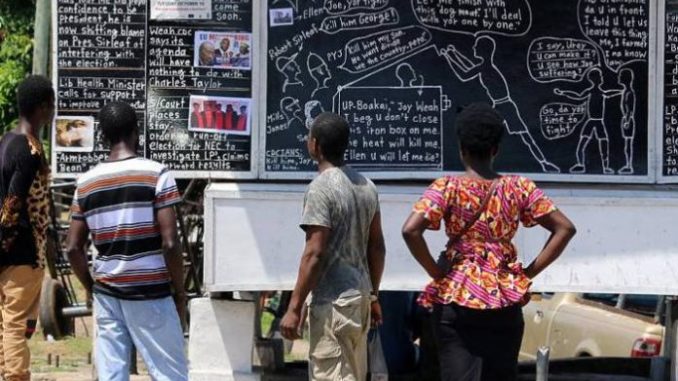
Liberia’s election commission on Friday confirmed its rejection of fraud allegations over the first round of presidential elections, setting the scene for a showdown at the Supreme Court.
The announcement, which concerns the October 10 vote, confirms a decision initially taken on Monday, National Elections Commission (NEC) official Davidetta Lassana told reporters.
A second round of voting, pitting Joseph Boakai of the ruling Unity Party against former superstar footballer George Weah, had been due to take place on November 7 but was postponed by the Supreme Court following a complaint about electoral fraud.
The Liberty Party candidate Charles Brumskine, who came in third, claimed that ballot stuffing and false voter registration cards marred the election — allegations then backed up by Boakai.
The commission found that the two parties failed to provide “indubitable evidence” as required by the constitution that the vote was tainted by fraud, citing material errors that had no consequence and were corrected afterwards.
“The request by the complaining parties for a re-run of elections is hereby denied,” said Lassana.
Before the announcement, the two parties had already publicly called on the NEC’s board to step down over the allegations, saying they would appeal to the Supreme Court.
The Supreme Court can decide whether to reject Boakai and Brumskine’s complaint and allow the runoff to go ahead, or call new elections.
The election was described as free and fair by international and domestic observers, despite some reported delays.
Weah finished well ahead of Boakai and far clear of Brumskine, but failed to get more than 50 percent of votes to win outright, triggering the runoff.
International donors have poured billions of dollars into Liberia since President Ellen Johnson Sirleaf was elected in 2005, and are nervously monitoring what should be the country’s first democratic transition in seven decades.